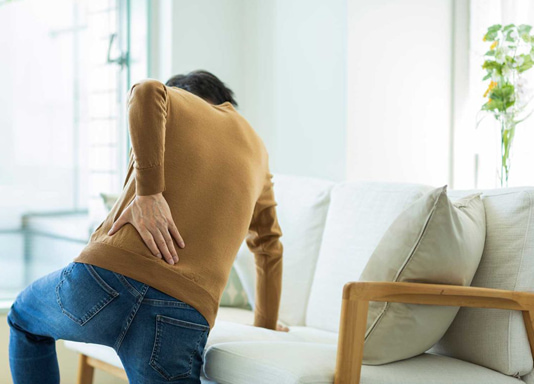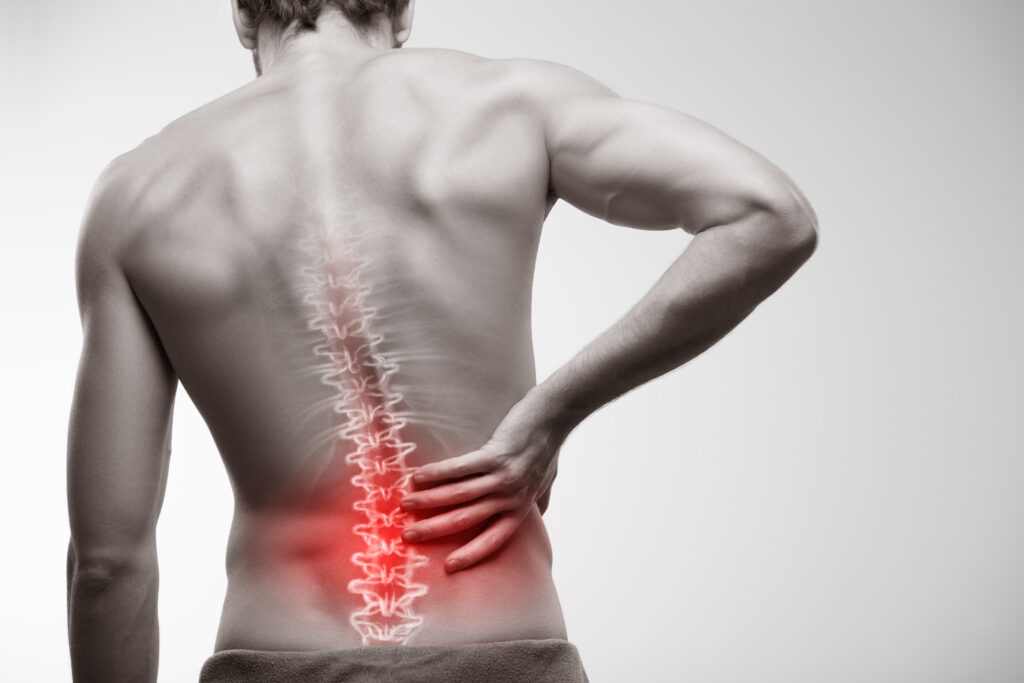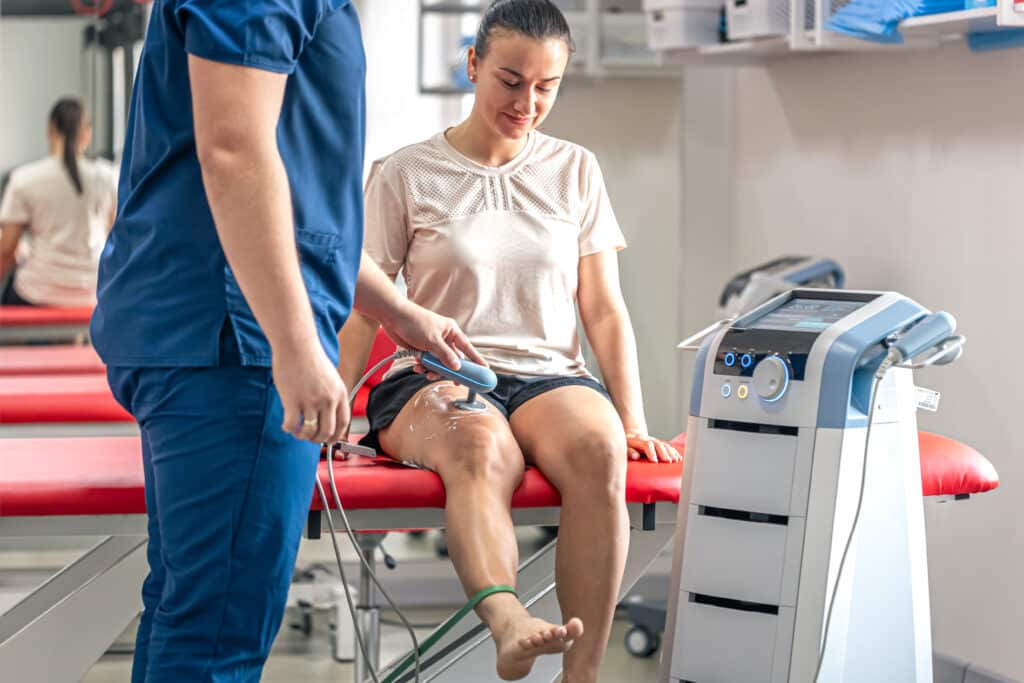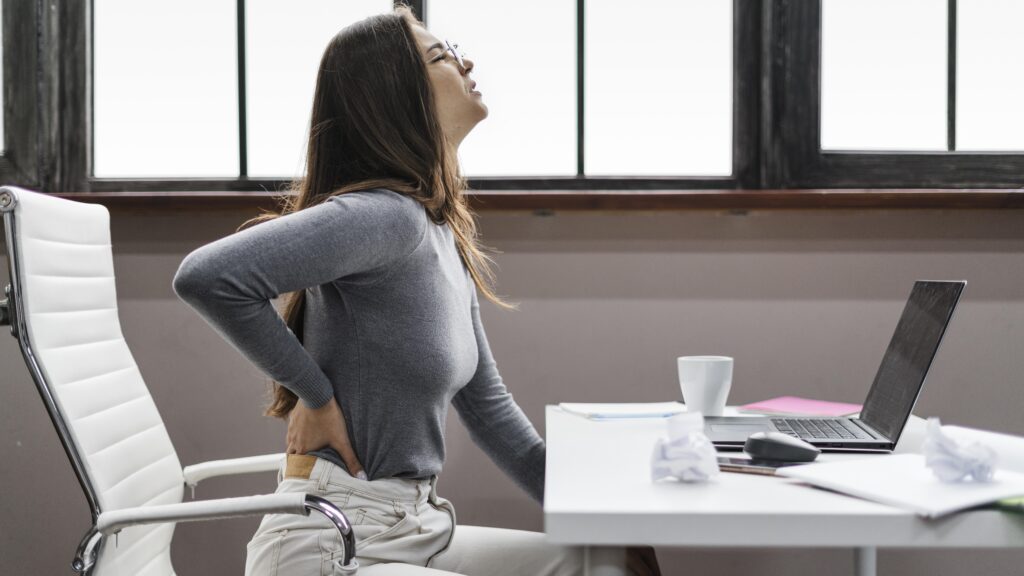Low back pain is a common complaint for so so many. It is a result of every day’s bad habits that burden and strain your back muscles and joints. While this condition is not serious in most case scenarios, it can be severely painful.
According to the National Institute of Neurological Disorders and Stroke (NINDS), back pain will affect about 80 % of people at some point in their lives. Most cases of lower back pain can be linked to a general cause (such as muscle strain, injury, or overuse, or can be attributed to a specific condition of the spine such as disc problems).
If you’re suffering from low back pain now, or if you do care about your spine health and wish to evade any future potential back pain, exert all effort to avoid these seven bad, yet common, habits:
1. Poor posture:
Posture is an important part of preventing problems ranging from back pain to fatigue. When the back is straight, the spine is supported and stabilized, but as you slouch, hunch, or slump, or practice other methods of poor posture, your spine no longer has the support it needs to stay balanced, leading to many health problems. Poor posture can strain your muscles and put stress on your spine. Gradually and over time, this may actually predispose to spine curvatures.
2. Lack of physical exercise:
Inactivity plays a decisive role in our lack of wellness. It is physically, mentally, and emotionally draining. If you routinely suffer from muscle aches and pain, your sedentary lifestyle is to be blamed. So many people who have desk jobs frequently report feeling muscle tension or soreness. While stress does play a role, lack of exercise is also to blame. If you find yourself struggling with muscle tension, especially in your neck and back, make an effort to include exercise in your daily schedule. Your sore muscles will thank you.
Get moving please. Exercise helps blood flow more efficiently, which allows muscles greater access to oxygen-rich blood. Gentle forms of exercise, such as riding a stationary bike, jogging or walking, are especially helpful.
3. Lifting incorrectly:
Getting out of position during lifting a weight can put a great deal of stress on your lower back muscles, and when the demand is too high on a muscle it can be injured. Too much stress can cause tiny tears in a muscle, known as muscle strain, which is a very common form of back injury.
Please follow the following tips to avoid straining your lower back when you are lifting:
- Stand close to the weight and face it directly to avoid twisting. Your feet should be flat on the floor and firmly under your chest;
- Squat down, bending at the hips and knees only;
- Look straight ahead, and keep your back straight, your chest out, and your shoulders back. This helps keep your upper back straight while having a slight arch in your lower back.
- Slowly lift by straightening your hips and knees (not your back). Keep your back straight, and don’t twist as you lift.
- Hold the weight as close to your body as possible (at the level of your belly button);
- Use your feet to change direction, taking small steps.
- Lead with your hips as you change direction. Keep your shoulders in line with your hips as you move.
- Put down your weight carefully, squatting with the knees and hips only.
4. Body over weight:
Keep your weight under control for back pain prevention. The spine is designed to carry the body’s weight and distribute the loads encountered during rest and activity. When excess weight is carried, the spine is forced to bear the burden, which may lead to structural compromise and damage (e.g., muscle injury, sciatica, etc.). One region of the spine that is most vulnerable to the effects of obesity is your low back—the lumbar spine. A regular and sustained exercise program will help improve episodes of back pain and prevent (or minimize) future incidents of back pain.
5. Neglecting dairy products and sun exposure:
Calcium and Vitamin D are essential for bone strength. If you are not getting enough calcium and vitamin D in your daily diet (your body also synthesizes vitamin D in response to sun exposure), you are putting your musculoskeletal system in harm`s way. Muscle weakness could be a sign of insufficient vitamin D.
Vitamin D deficiency is impossible to self-diagnose, so contact your orthopedic specialist if you are suffering from frequent muscle aches and low back pain. Muscle weakness can have many different causes, so a vitamin D deficiency is not necessarily the source of any muscle problems you might encounter. Because vitamin D and calcium work together in the body, your doctor might advise adjusting your calcium intake along with any vitamin D supplementation.
6. Smoking:
Beyond any doubt, smoking raises your risk for heart disease and cancer, including lung and colon cancers, but so many people don’t realize that smoking also can be a cause of distressing back pain. Research results even go far to imply that smoking can make existing back pain worse. It’s not entirely clear how smoking negatively impact back health, but one accepted probability is that it narrows blood vessels. Narrowed blood vessels result in less oxygen and nutrients reaching the spine and, in turn, it becomes more susceptible to injury and slower to heal.
Collectively speaking:
The good news is that most cases of lower back pain usually gets better within a few days or weeks either spontaneously, through some rest and over-the-counter pain killers, or under medical attention. Surgical treatment is rarely necessary. What’s more, combating the above bad habits can be surprisingly effective at preventing back pain and keeping it from returning.
If you are suffering from back pain, consult Dr. Stefan Matschke, the Orthopedic Surgery Specialist at German Medical Center, the best orthopedic clinic in Dubai. Dr. Matschke is an expert in providing personalized treatment for back pain.
Dr. Stefan Matschke
Orthopedic Surgery Specialist
Head of Spine Center
BG Klinik Ludwigshafen University Heidelberg


















